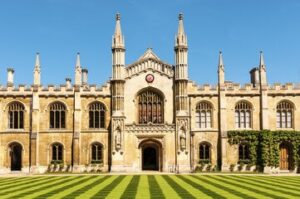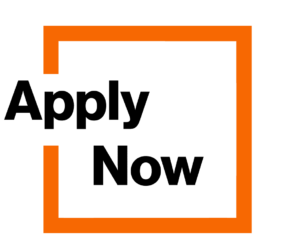Dhiraj Kandel
Managing DirectorSchedule a free consultation with our expert counselors to discuss your study
Got stuck, while planning to study Masters in Canada? Well, don’t worry because you are not the only one. It happens to every second Bachelor’s graduate. Canada has become the dream destination for students who want to study abroad.
Students often go crazy while searching for consultancy in Nepal for Canada with the best course and universities for Masters in Canada. If you are also among those who want to study Master’s in Canada but don’t have any idea what to do then this blog is for you.
Here, we are going to discuss everything one may need to study master’s in Canada may need. Stay tuned.
Table Of Content:-
1. Why Study Masters In Canada?
2. Top Ten Universities For Masters In Canada
3. Top Courses For Masters In Canada
4. How To Choose Right University For Masters
5. Applying For A Masters In Canada.
6. Working In Canada After Masters

You may be wondering, there are many alternative options out there to study Masters’s, then why should you study Masters in Canada, right?
Well, it is a matter of fact that universities in Canada for international students offer a quality master’s program at a price less than what the United States, the United Kingdom, or Australia offer.
Below we have made a list of the top 10 reasons, why you should consider studying Masters’s in Canada. Check it out.

As Canada has too many options for universities in Canada for international students for masters, students find it very difficult to decide which universities they should go with.
Not to worry anymore! Only for you, below we have listed the top 10 universities with their ranks and average annual fees for Masters in Canada.
| S.N. | University | World Rank | Average Annual Fee (CAD) |
| 1. | University of Toronto | 18 | 37,897 |
| 2. | University of British Columbia | 34 | 8,592 |
| 3. | McGill University | 42 | 18,110 |
| 4. | McMaster University | 72 | 17,093 |
| 5. | University of Montreal | 85 | 24,558 |
| 6. | University of Alberta | 136 | 9,465 |
| 7. | University of Ottawa | 141 | 25,718 |
| 8. | Western University | 201 – 250 | 117,500 |
| 9. | University of Waterloo | 201 – 250 | 14,084 |
| 10. | University of Calagary | 201 – 250 | 14,538 |
After choosing a university to study in Canada, the next step students have to take is to choose the best course for them. If you are also confused about which course you should join for Masters then, we have brought a solution for that as well.
Here, we have listed top 5 courses offered by popular universities for Masters programs in Canada for international students.
| S.N. | Top Masters Program/Course | Universities | Total Fee (CAD) |
| 1. | MBA | ● University of Toronto ● McGill University ● Western University ● Queen’s University ● York University | 45,000 – 125,000 |
| 2. | Masters in Computer Science | ● University of Toronto ● University of British Columbia ● McGill University ● University of Alberta | 70,000 – 90,000 |
| 3. | Masters in Software Engineering | ● McMaster University ● University of Calgary ● Western University ● Concordia University ● University of Regina | 22,000 – 82,000 |
| 4. | Masters in Nursing in Canada | ● University of Toronto ● McMaster University ● McGill University ● University of Alberta ● University of British Columbia | 15,000 – 70,000 |
| 5. | Masters in Finance | ● University of Toronto ●University of British Columbia ● McGill University ● Queen’s University Universite deMontreal | 30,000 – 80,000 |
Note: The fees depend on which Masters specialization course you have chosen in which universities. The annual fees of a course vary from university to university.
Struggling to choose the right university for your Master’s degree in Canada? Well, choosing the right university for Masters in Canada is not an easy task. It may take longer than one can expect.

No matter how much you know, sometimes you end up choosing the wrong university which will be not be fitted for you to study Masters.
Yes, but if you follow the tips that we are going to discuss below then there is no way you are gonna mess up choosing a Masters university in Canada.
There are a lot of factors you have to consider while making a decision to choose the right university for your Master’s degree in Canada. Take a look.
Therefore, you have to consider choosing a university in such a state where accommodation costs are low. We hope you will make a decision wisely. Best of Luck!!!
Related content:- Ielts Requirements For Canada Student Visa

Applying for a Master’s program in Canada is not as simple as it looks. Each Canadian university has set its own criteria to admit an international student.
Once you choose the right university and the right course to study Masters, then you have to submit an application with the requirements asked by the university. There are many requirements to follow to get admission to the best university from application process to academic requirements.
You need to be eligible and meet some criteria to apply for Masters in Canada. Below are some common Masters in Canada requirements a university may ask you.
Note: Requirements for your GMAT score, GRE score and IELTS or TOFEL score may vary from one university to another.
Related content:- English Test Requirement For Canadian Universities And Colleges
As applicants for Masters in Canada are rapidly increasing every single year, it’s become pretty competitive to get admission for a Master’s program.

The academic sessions of Canadian universities usually start in September but a few universities have their own start dates.
As it may take longer for an application process to be completed, we advise you to apply for your Master’s program in Canada by the month of January. You can follow the steps below to apply for Masters’s in Canada.
A full-time Masters’ student in Canada can work up to 20 hours per week during university semesters and do a full-time job during the winter and summer holidays without any work permit.
Once you clear your Masters’s program in Canada, you get multiple job opportunities. You can apply for a 3-year Post-graduation Work Permit (PGWP) and start working in Canada.
Having a work experience in Canada plays a vital role to get Canadian citizenship and be a permanent residency of the country.
mentioned top 10 highest-paying jobs you can do in Canada after completing your Master’s degree. These jobs are the most demanded and high paying in Canada. After master, you can have those jobs for a better career and for future prospects.
| S.N. | Jobs | Average Annual Salary (CAD) |
| 1. | Nurse Practitioner | 104,000 |
| 2. | Dentist | 93,600 |
| 3. | Utility Manager | 114,000 |
| 4. | Power Systems Electrician | 86,000 |
| 5. | Mining and Quarrying Supervisor | 83,200 |
| 6. | Pipefitting Supervisor | 81,000 |
| 7. | Engineering Manager | 106,000 |
| 8. | Scientific Research Manager | 102,000 |
| 9. | Public Administration Director | 110,000 |
| 10. | Construction Manager | 83,000 |
1: How much do Masters cost in Canada?
The tuition fees in universities in Canada for international students for Masters range from CA$ 20,000 to 30,000 CAD annually.
2: Which Master’s program is most valuable in Canada?
The most valuable Master’s degrees in Canada are Project Management, Data Science, and Engineering in Canada on Computer science, Civil & Electrical.
3: Is Masters worth it in Canada?
As universities in Canada offer Masters’s programs at a very affordable price with quality education, doing a master’s in Canada is definitely worth it.
4: Does Canada offer 1 year Master’s?
Yes, these universities offer a 1-year Masters program in Canada:
If you are planning to study Masters’s and need some guidance then you can directly contact Goreto Education, one of the best consultancy in Nepal for Canada.
We have a team of experts who help students in giving full guidance about Canada. We have been consulting students in Nepal to study abroad for more than a decade. We will help you find the best university and the best course for you to study for Masters’s in Canada.
From choosing the right country to finding scholarships and housing — our counselors will guide you at every step.
Choose the right country based on your goals
Find courses that match your career plan
Get guidance on colleges and universities
Plan your finances, scholarships & part-time jobs
Plan your abroad stay & post-study plan